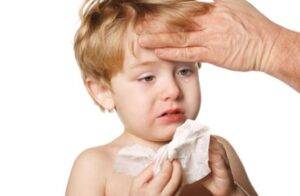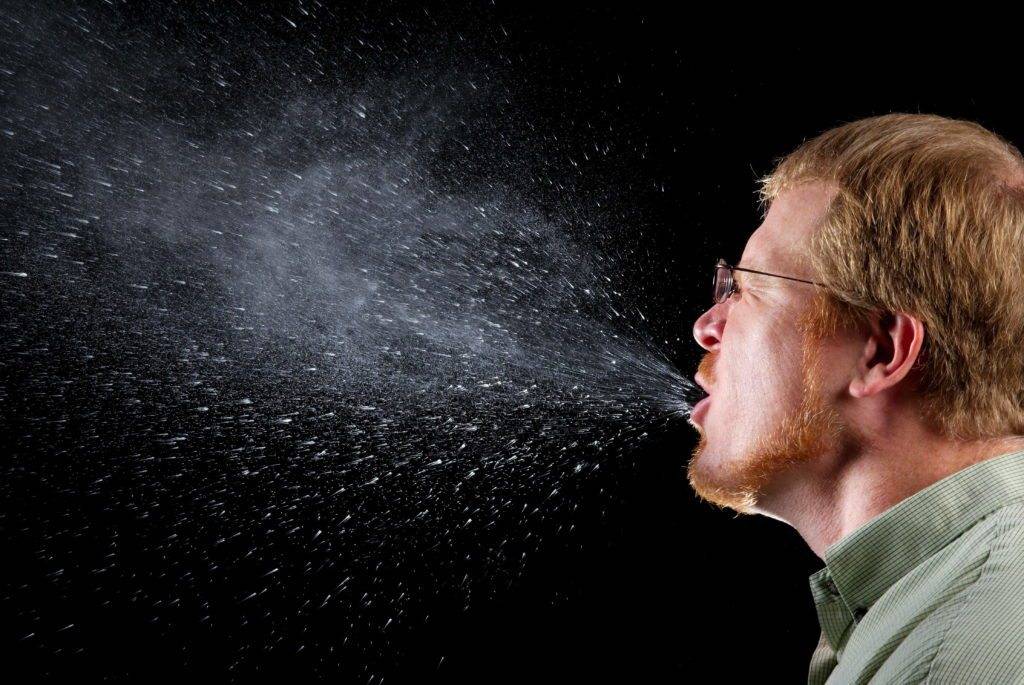Strep throat has caused your child to be absent from school for some time, and you’re now concerned about how long it will take for the symptoms to clear so that your little one may be fit enough to go back to school. Worry not!
Your child is suffering from painful and uncomfortable symptoms, and you’re eager for them to recover quickly. They’ve also fallen behind on their schoolwork during their absence. Your child’s pediatrician at Omega Pediatrics is here to help you.
We know it’s distressing to see your little one feeling unwell. We want your child to recover so they can return to school. This article will discuss the nature of strep throat. We stress the importance of medical treatment to hasten recovery. Keep reading!
How Many Days Can My Child Recover from Strep Throat?
Your child is in a great deal of discomfort due to the painful symptoms lasting for three to five days. Hence, timely diagnosis and treatment are essential.
To say it straightforwardly, your child can recover from strep throat within a few days. The fever is expected to subside within 24 hours after starting antibiotics. Then, the sore throat should start to feel better within 48 hours.
This illness is contagious until 24 hours after starting antibiotics, so keep your child at home, with limited exposure to other children and other individuals within the household.
Most kids are safe to go back to school or daycare after starting to take the antibiotics for at least 12 hours, as long as they don’t have a fever. By this time, parents would also not worry about infecting others. The symptoms will continue to subside thereafter.
However, ensure that your child continues taking the antibiotics until the prescribed full course is completed, even if they show signs of relief. It’s highly important to finish the course to avoid future complications or recurrences.
Why are Antibiotics Essential for Strep Throat Treatment?
Antibiotic treatment is crucial to treat strep throat, especially in children. It can readily alleviate the symptoms, thereby speeding up recovery. Also, it will contain the spread of the bacteria and decrease the likelihood of developing complications.
If left untreated, this illness can lead to serious complications; hence, starting antibiotics immediately is crucial. The complications in children are rheumatic fever, kidney disease, or serious infections in other body parts.
Antibiotic Treatment: The Side Effects
While antibiotic treatment is essential, in some cases, there are also side effects like diarrhea or vomiting, abdominal pain, rash, and yeast infections. There could also be allergic reactions, some of which are serious and life-threatening.
Antibiotics kill the bacteria causing the infection, but they don’t treat the symptoms such as pain, fever, and nasal congestion. Pain and fever are treated with an antipyretic such as ibuprofen or acetaminophen. Use a humidifier to relieve congestion.
What about Antibiotic Resistance?
Another risk to be concerned about is antibiotic resistance. Antimicrobial resistance happens when streptococcus bacteria develop the ability to defeat the drugs designed to kill them. This is difficult to resolve since the antibiotics pressure the bacteria to adapt.
Antibiotic resistance can be attributed to when the medication isn’t used correctly or repeatedly, causing the bacteria to react against what it should be. This is a natural process where germs develop their resistance mechanisms.
When this happens to your child, the prescribed medications will lose effectiveness. The symptoms don’t show improvement after 2–3 days.
As such, you need to have a follow-up visit with your doctor. The doctor will examine the symptoms and note that there is no improvement, and they will change the prescription.
When your child shows recurring symptoms, the doctor prescribes a different antibiotic for every occurrence. In this case, one type of antibiotic isn’t repeatedly used, thus preventing the bacteria from being resistant.
The Role of the Pediatrician in Strep Throat Antibiotic Treatment
 A visit to the pediatrician is very important to have your child treated for the infection. Parents should not dwell on preconceived assumptions. Home remedies can be done to ease the symptoms, but remember, the bacteria will not disappear.
A visit to the pediatrician is very important to have your child treated for the infection. Parents should not dwell on preconceived assumptions. Home remedies can be done to ease the symptoms, but remember, the bacteria will not disappear.
Upon meeting your child’s pediatrician, a visual examination of the symptoms is conducted. A rapid antigen test or a throat culture is done to confirm the presence of streptococci bacteria.
It should be noted, though, that the bacteria doesn’t cause most sore throats. It’s possible that you or your child will have the symptoms but don’t have strep throat. The cause of the symptoms could be a viral infection or some other illness.
The diagnostic tests are performed specifically for strep throat. The positive result of the test will be the basis for the doctor to prescribe the 10-day antibiotic treatment. Upon starting the antibiotics, the symptoms will greatly improve, and your child will feel better.
Typically, the prescriptions are penicillin, amoxicillin, azithromycin, and third-generation cephalosporins such as cephalexin and clindamycin. Penicillin and amoxicillin are commonly prescribed due to their safety and effectiveness.
If, for some reason, there’s no diagnostic test done, even with the symptoms presented, an antibiotic prescription should not be given. It’s also possible for you to be exposed to a person who carries the bacteria but shows no symptoms.
Upon starting antibiotic treatment, the doctor will schedule a follow-up visit on the second or third day of treatment. By this time, after 24-48 hours of taking antibiotics, the doctor will visually examine if the symptoms of the infection have improved.
If there are positive results, the doctor will give instructions that your child can go back to school and that they’re on their way to full recovery. Otherwise, the doctor will change the prescription, increase the dosage, or give further instructions.
The doctor notes every antibiotic prescription, which will form part of your child’s medical record. This could be beneficial in the event of a recurrence of the infection or other illnesses. The doctor will not prescribe the same type of antibiotic.
Choose Omega Pediatrics
Since antibiotic treatment is essential to treating your child’s strep throat, it’s necessary to seek consultation with your child’s healthcare provider. In this case, a pediatrician is highly recommended—the specialist for children’s health.
Let Omega Pediatrics manage your child’s strep throat—your competent and experienced provider. Antibiotic prescriptions aren’t just brick-and-mortar. Even with antibiotics, when they aren’t the right ones, they may just cause more harm than good.
And much more, pediatrics spans a wide range of children’s ages, plus differences in body weight for every child. All these factors are considered to determine the type of antibiotic, the dosage, and the duration of the treatment.
Before prescribing antibiotics, we at Omega Pediatrics have the expertise to find out if it’s the right medicine appropriate for your child’s strep throat. We practice evidence-based medicine to ensure your child is fully recovered from the illness.
How can Strep Throat be Prevented in Children?
While there’s no vaccine yet, these preventive measures can help reduce the risk of infection and minimize the spread of the infection in children.
1. Hand Hygiene
Encourage them to wash their hands frequently with soap and water for at least 15-20 seconds, especially before eating and after coughing, sneezing, or using the restroom. If soap and water aren’t available, an alcohol-based hand sanitizer can do.
It’s essential to instill in your school-age kids good hand hygiene at all times so that they can mitigate the risk of contracting the bacteria.
2. Respiratory Etiquette
Without a respiratory mask, teach your kids to cover their mouth and nose with a tissue when coughing or sneezing, or to cough or sneeze into their elbow if a tissue isn’t available. Dispose of used tissues immediately, and wash hands immediately after.
3. Avoid Sharing Personal Stuff
Remind your kids to be extra careful when sharing their food and drinks, as well as eating utensils and other personal items, with others. This includes spoons, forks, dishes, drinking glasses, bedding, pillows, towels, and stuffed toys.
Common food served at the table should have serving cutlery. If a household member has the infection, separate their eating utensils, dishes, and drinking glasses and wash them in hot, soapy water to protect others in the family.
4. Regularly Clean Surfaces
Regular cleaning and disinfecting surfaces that are frequently touched in your house is essential. This includes doorknobs, countertops, stair railings, and light switches, to reduce the spread of germs.
Your kid’s toys and stuffed toys they frequently cuddle with should also be regularly cleaned and disinfected.
5. Stay Home When Sick
Keep children home from school or daycare when they’re sick. They should stay home until they have taken antibiotics for at least 12 hours and no longer have a fever, and they should not return to school or daycare until they’re no longer contagious.
6. Prompt Medical Attention
Be watchful of the symptoms when you suspect your child has strep throat. Reach out to a pediatrician promptly. Prompt medical treatment can help clear up the infection at the earliest possible time.
Seek Medical Treatment for Your Child’s Strep Throat

Don’t gamble your time or rest on your assumptions. If you suspect your child has a strep infection, seek medical assistance promptly for a proper diagnosis and treatment.
Parents and caregivers should fully comprehend the nature of strep infection in children. By doing so, they can be proactive, alleviate the symptoms, and stop the spread. They will be aware of the severity of complications if they arise.
Reach out to your child’s doctor for proper management. Only a medical practitioner can prescribe antibiotics with the correct dosage and duration of treatment.
Omega Pediatrics in Roswell, Georgia, is highly recommended to treat your child’s strep throat. They’re experts in children’s health and illnesses and have science-backed information to treat your child with top-notch care.
Omega Pediatrics provides medical treatment, preventive care, parent education, and counseling for your child’s strep infection and other children’s illnesses. With this, parents and children are treated with holistic care.





